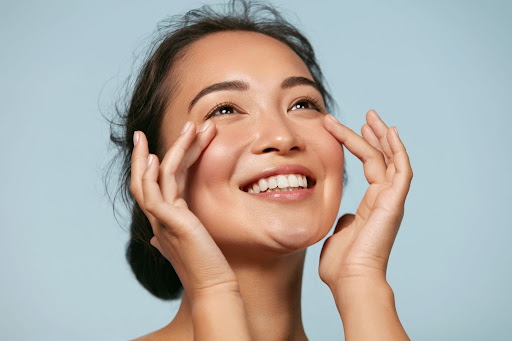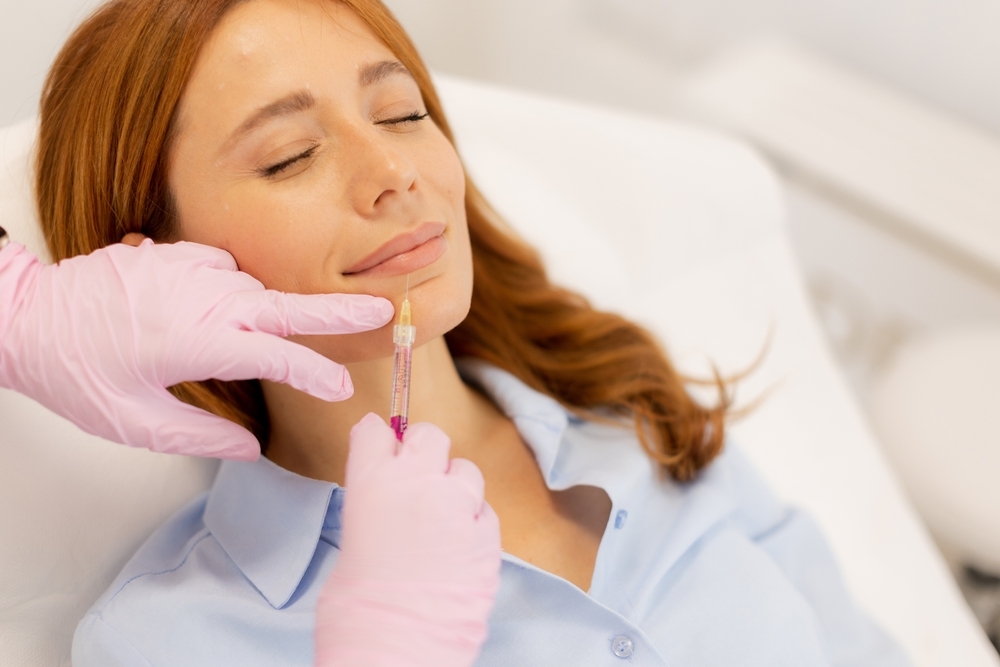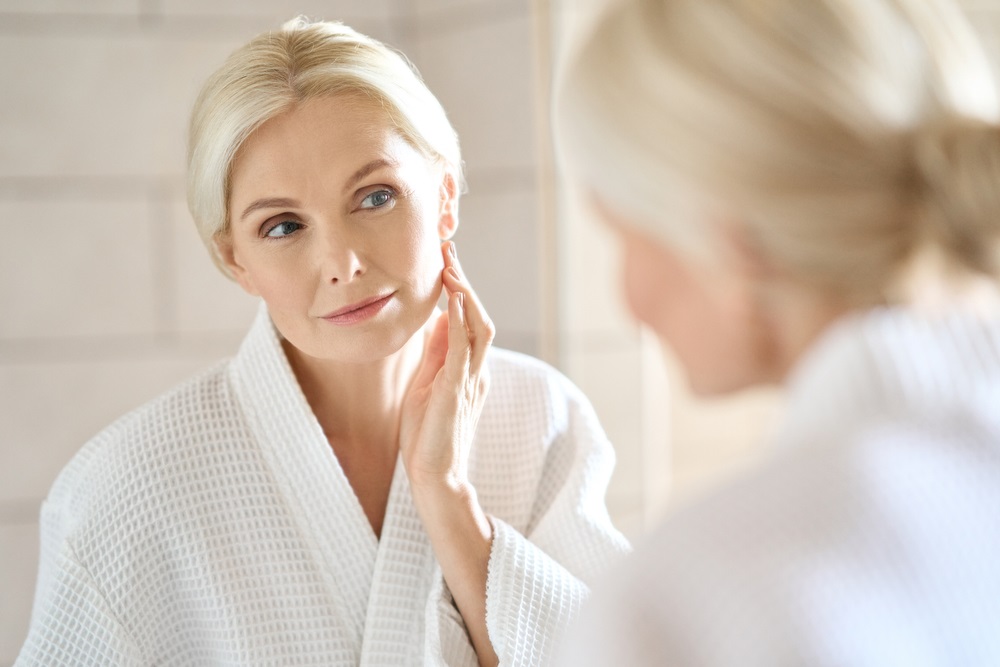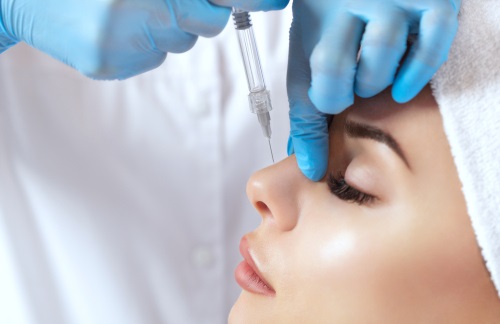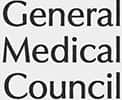The venesection was painless to say the least, thank you for using local anaesthetics; highly recommended
Do you feel self-conscious about how much you sweat, regardless of how much antiperspirant you use? If you feel like you sweat more than normal when going about your daily tasks, you may have a condition called hyperhidrosis. You’re certainly not alone if you feel embarrassed when sweat soaks through your clothing or drips excessively off your hands.
But hyperhidrosis is more common than you might think, affecting around one to three people in every 100 in the UK.
What Is Hyperhidrosis?
Sweating is a normal body mechanism that helps to cool you down when your body temperature or heart rate is elevated, such as when you’re nervous. However, this mechanism doesn’t always work as it should. When normal sweating becomes excessive, it’s called hyperhidrosis. You may even sweat when you’re not warm or you’ve been largely sedentary.
Excessive sweating usually affects the underarms, but it is also relatively common in the hands and feet, which is referred to as focal or primary hyperhidrosis. When you experience excessive sweating all over your body, it is called secondary hyperhidrosis.
Hyperhidrosis can be triggered by various medical conditions, including thyroid disorders, diabetes, nervous system disorders, menopause and obesity. Certain prescription drugs are also known to induce excessive sweating. At Harley Street MD in London, we know that while this condition doesn’t cause physical harm, it can impact your confidence in public situations and relationships.
Hyperhidrosis Treatment — Stop Excessive Sweating
If excessive sweating is affecting your daily life and has led to emotional stress and social avoidance, lifestyle changes and various types of hyperhidrosis treatment can help.
Here are a few things you might want to try:
Lifestyle changes: Simple changes can help reduce sweating, such as wearing loose-fitting clothing made from breathable fabrics, avoiding spicy foods and drinking water to prevent dehydration.
Prescription antiperspirants: Most antiperspirants contain aluminium-based compounds such as aluminium chloride, aluminium zirconium and aluminium chlorohydrate. These compounds form a temporary “plug” in the sweat duct, which reduces the flow of sweat to the skin’s surface.
Prescription antiperspirants contain higher concentrations of aluminium chloride and a stronger compound called aluminium chloride hexahydrate, which is not in standard commercial antiperspirants. However, they can have some unpleasant side effects, such as a dry mouth and dry eyes.
Prescription medications: If you still sweat excessively after trying prescription antiperspirants or you experience side effects, you might want to consider prescription medications. These work by reducing the activity of the sweat glands. Associated side effects of prescription medication include dry mouth, blurred vision, bladder problems and constipation, and they may also become less effective when taken for a long time.
The most commonly prescribed medications for hyperhidrosis are:
• Glycopyrrolate (brand name: Robinul)
• Oxybutynin (brand name: Ditropan)
• Propantheline bromide
• Benztropine
miraDry: This is a non-invasive treatment for treating excessive sweating of the armpits. It is performed with a handheld device that delivers microwave energy, which destroys the sweat glands and hair follicles.
Laser sweat ablation (LSA): This treatment is typically used to treat underarm sweating. It is similar to laser hair removal and uses a handheld device to deliver heat from a laser to destroy the sweat glands.
Surgery: Endoscopic thoracic sympathectomy (ETS) is normally used for treating the hands and face. During the procedure, a surgeon will cut or clamp the nerves that trigger sweating.
Botox for Hyperhidrosis
At our aesthetic clinic in London, we provide Botox for hyperhidrosis so you can live your life without worrying about what you wear or when you will have to change your clothes.
Botox for sweating works by temporarily blocking the nerves that stimulate the sweat glands. Clinical studies have shown Botox to be successful at reducing excessive sweating both under the arms and on the hands, although the effects won’t last as long when it is used for the latter.
Botox is extremely safe and has been approved by the Food and Drug Administration (FDA) for treating excessive underarm sweating. Out of all of the treatment options available, research has shown that Botox for hyperhidrosis is one of the most effective. Unfortunately, Botox is not normally available on the NHS, and you’ll likely have a long wait for a referral to a dermatologist.
Risks and Complications of Botox for Hyperhidrosis
Botox for hyperhidrosis is a very safe treatment and there are very few associated risks and complications when it is performed correctly. The most common risks will usually only last 24 to 48 hours and include:
• Bruising
• Swelling
• Skin irritation or soreness
• Infection
• Flu-like symptoms
• Fatigue
• Dry mouth
• Headaches.
If you decide to pay for Botox to treat your hyperhidrosis, it is vital to choose a qualified medical professional. At Harley Street MD in London, our Botox treatments are performed by Dr Tan, a GMC registered doctor, so you can be confident you are in safe hands. We will help you get the treatment you need to improve your quality of life.
The procedure is simple and safe, and your appointment will last around 30 minutes. You will be offered a topical anaesthetic cream before the Botox injections are administered to minimise any discomfort. We also recommend shaving or trimming your underarm hair at least 12 hours before the procedure to reduce the risk of infection.
The initial effects of the Botox hyperhidrosis treatment should be apparent in a few days, and you will see the full effects within two weeks. These will last for up to nine months, depending on the individual. You’ll probably find that you want a top-up once or twice per year so that you never have to deal with the embarrassment of excessive sweating again.










